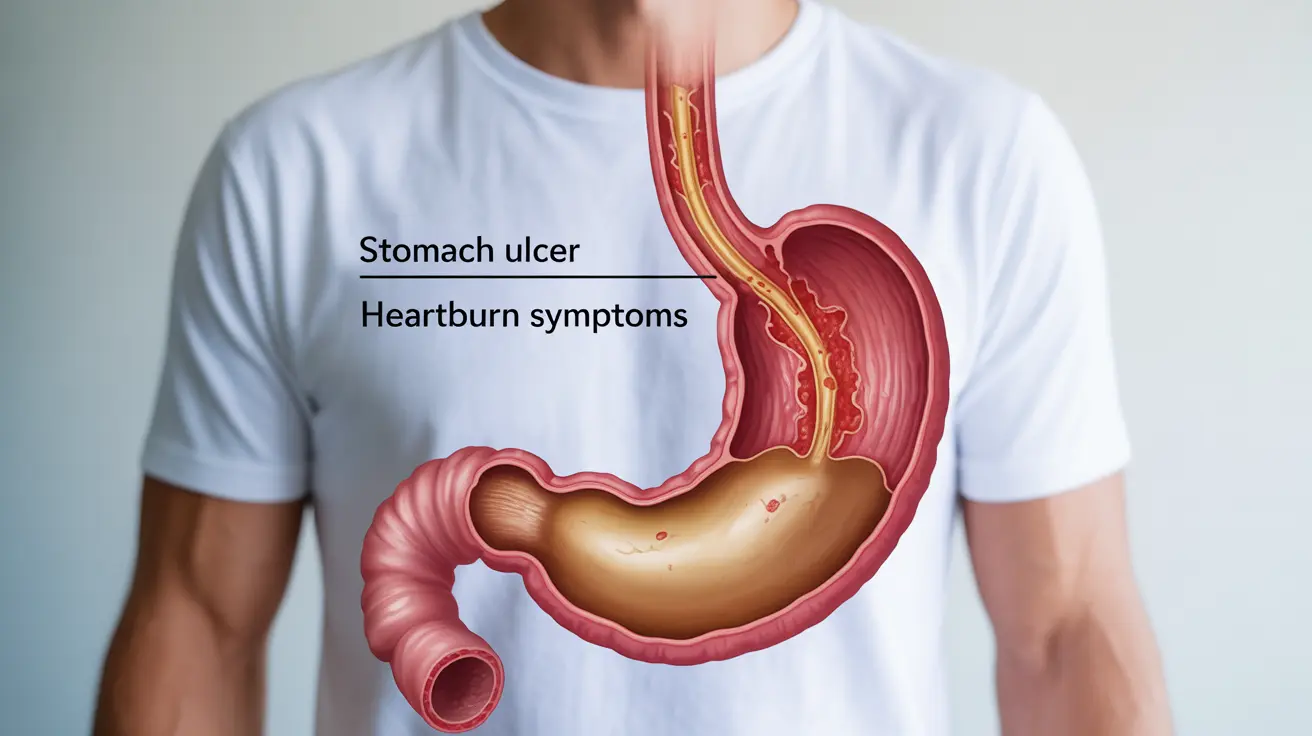When experiencing upper digestive discomfort, it can be challenging to determine whether you're dealing with a stomach ulcer or heartburn. While both conditions can cause significant discomfort, they are distinctly different medical issues requiring specific approaches to treatment and management.
Understanding the differences between ulcers and heartburn is crucial for getting proper treatment and relief. This comprehensive guide will help you distinguish between these common digestive problems and know when to seek medical attention.
Understanding Stomach Ulcers and Heartburn
Stomach ulcers, also known as peptic ulcers, are open sores that develop on the inner lining of the stomach or small intestine. They're often caused by bacterial infection or long-term use of certain medications. Heartburn, on the other hand, is a burning sensation in the chest caused by stomach acid flowing back into the esophagus.
Key Differences in Symptoms
Location and Sensation
Ulcer pain typically occurs in the upper abdomen and can feel like a gnawing or burning sensation. This pain may improve or worsen with eating. Heartburn pain occurs in the chest area behind the breastbone and typically worsens after eating or when lying down.
Timing and Duration
Stomach ulcer pain tends to be more consistent and may last for weeks at a time. Heartburn symptoms are usually temporary and directly related to eating or position changes, often lasting minutes to hours.
Diagnosis and Treatment Approaches
Diagnosing Ulcers
Doctors typically diagnose ulcers through endoscopy or H. pylori testing. Treatment often involves antibiotics if H. pylori is present, along with acid-reducing medications like proton pump inhibitors (PPIs).
Managing Heartburn
Heartburn is usually diagnosed based on symptoms and can often be managed with lifestyle changes and over-the-counter antacids. More severe cases may require prescription medications or investigation for GERD (Gastroesophageal Reflux Disease).
Prevention and Lifestyle Modifications
Both conditions benefit from certain lifestyle changes, including:
- Avoiding trigger foods
- Maintaining a healthy weight
- Eating smaller meals
- Quitting smoking
- Limiting alcohol consumption
- Managing stress effectively
When to Seek Medical Care
Immediate medical attention is necessary if you experience:
- Severe, persistent abdominal pain
- Black or bloody stools
- Difficulty swallowing
- Unexplained weight loss
- Vomiting blood
- Severe chest pain
Frequently Asked Questions
What is the main difference between a stomach ulcer and heartburn?
A stomach ulcer is an open sore in the stomach lining or small intestine, while heartburn is a burning sensation caused by acid reflux into the esophagus. Ulcers typically cause consistent pain in the upper abdomen, whereas heartburn causes chest discomfort that's often related to eating or lying down.
How can I tell if my stomach pain is from an ulcer or just heartburn/GERD?
Ulcer pain typically occurs in the upper abdomen and may improve with eating, while heartburn causes a burning sensation in the chest that usually worsens after meals or when lying down. Heartburn pain tends to be more temporary, while ulcer pain can persist for extended periods.
What are the most effective treatments for stomach ulcers compared to heartburn?
Stomach ulcers often require prescription medications like antibiotics (if H. pylori is present) and PPIs for healing. Heartburn can frequently be managed with lifestyle changes and over-the-counter antacids, though severe cases may require prescription medications.
Can certain foods or lifestyle habits make ulcers or heartburn worse, and what should I avoid?
Both conditions can be aggravated by spicy foods, acidic foods, alcohol, and caffeine. Eating large meals, lying down after eating, and smoking can particularly worsen heartburn symptoms. For ulcers, avoiding NSAIDs and managing stress are especially important.
When should I see a doctor for stomach pain or heartburn symptoms?
Seek medical attention if you experience persistent pain that doesn't improve with over-the-counter medications, difficulty swallowing, unexplained weight loss, black or bloody stools, or vomiting blood. Regular heartburn occurring more than twice weekly should also be evaluated by a healthcare provider.




